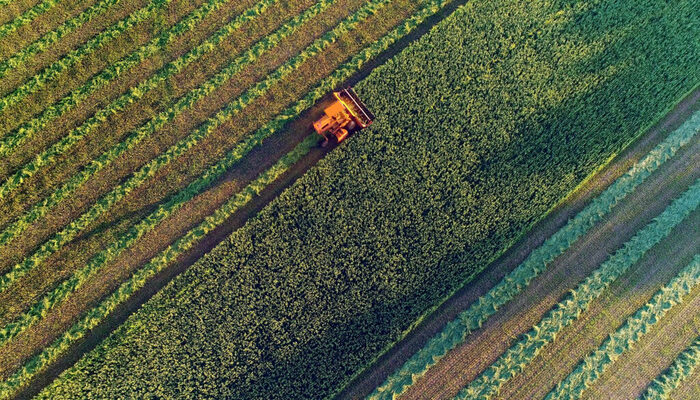Cultivating Prosperity starts with investing in the right areas, and agriculture is one of the most powerful sectors to drive sustainable growth. South Africa, with its rich land and resources, is in a unique position to harness the full potential of this industry.
As the backbone of rural economies, agriculture is more than just a job for millions of South Africans—it’s a way of life. But for the country to thrive, strategic investments in technology, infrastructure, and skills are essential for modernizing the sector.
The journey towards a prosperous future begins with informed investments that foster growth and opportunity. If you’re curious about how agriculture can truly transform South Africa’s economy, keep reading to uncover the key strategies behind Cultivating Prosperity.
The Current Landscape of Agriculture in South Africa
Agriculture is a vital component of South Africa’s economy, accounting for approximately 2.5% of the country’s GDP. Despite its relative contribution to the economy, it provides jobs to over 5 million people, especially in rural areas.
The sector produces a variety of crops and livestock, including maize, wheat, citrus fruits, and cattle. Yet, many challenges hinder its full potential, including land reform issues, climate change, and outdated farming practices.
In recent years, agricultural production has been affected by erratic weather patterns, which have made it difficult for farmers to predict yields. Additionally, access to modern farming technology remains limited for many small-scale farmers. These challenges make it clear that investment in agriculture is necessary to ensure the sector’s growth and sustainability.
How Investment Can Transform Agriculture
Cultivating Prosperity in South Africa through agriculture hinges on both public and private sector investments. Investment can take many forms, from funding for technology adoption to improvements in infrastructure and education. Here’s a breakdown of the key areas where investment can have a significant impact:
1. Modernizing Agricultural Practices
One of the most powerful ways to boost agricultural productivity is by modernizing farming methods. Many farmers in South Africa still rely on traditional techniques, which may not be as efficient or sustainable as modern practices.
Investments in advanced farming technologies such as precision agriculture, drones, and irrigation systems can help farmers optimize their crop yields and use resources more efficiently.
For instance, precision agriculture allows farmers to use data and analytics to make better decisions on planting, watering, and fertilizing crops. This can lead to reduced waste, lower costs, and improved crop health. By making such technologies more accessible to farmers, South Africa can ensure that its agriculture sector remains competitive on the global stage.
2. Strengthening Agricultural Infrastructure
A robust infrastructure network is crucial for the efficient movement of goods and services, particularly in the agricultural sector. In South Africa, inadequate transportation and storage facilities contribute to significant post-harvest losses, reducing the profitability of agricultural production.
Investing in road networks, rail systems, and cold storage facilities will allow farmers to reach markets faster and preserve their produce for longer periods. Furthermore, improving access to these facilities in rural areas can help smallholder farmers gain a foothold in larger markets, enabling them to increase their income and contribute to the national economy.
3. Education and Skills Development
Investment in education and training is essential for the future of South African agriculture. The sector needs a workforce that is skilled in modern farming techniques, business management, and sustainable practices. Through training programs and educational initiatives, farmers can learn how to improve their yields, manage risks, and adopt new technologies.
Moreover, providing resources for young people in rural areas to pursue agricultural careers is an investment in the long-term growth of the sector. By creating opportunities for youth involvement, South Africa can build a new generation of farmers and agribusiness leaders who are committed to Cultivating Prosperity in the country’s agriculture sector.
4. Facilitating Access to Finance
Access to finance is often one of the biggest barriers to agricultural development in South Africa, especially for small-scale farmers. Many farmers lack the capital to invest in new technologies, purchase equipment, or expand their operations. This is where investment in financial systems can make a huge difference.
Microfinance, agricultural loans, and insurance products tailored to the needs of farmers can provide the financial security and capital they need to grow their businesses. These financial products should be designed to take into account the unique risks faced by farmers, such as unpredictable weather and fluctuating market prices.
5. Encouraging Sustainable Practices
Sustainability is becoming increasingly important in the global agricultural sector, and South Africa is no exception. Climate change and environmental degradation are significant concerns for farmers across the country, particularly in areas where water resources are scarce.
To ensure that agriculture remains viable for future generations, investments must prioritize sustainable farming practices.
By supporting environmentally friendly practices such as crop rotation, organic farming, and water conservation, South Africa can protect its natural resources while continuing to produce food and other agricultural products. Sustainable agriculture also offers the potential for premium markets that are increasingly demanding eco-friendly products.
The Economic Impact of Agricultural Investment
Investing in agriculture offers far-reaching economic benefits for South Africa. By improving the efficiency and productivity of the sector, investments can help reduce poverty, create jobs, and contribute to economic growth.
Job Creation
Agriculture is one of the largest employers in South Africa, particularly in rural areas. As the sector modernizes and expands, it will create new job opportunities in farming, transportation, processing, and retail. These jobs are crucial for uplifting communities that are economically disadvantaged and providing stable incomes for families in rural areas.
Boosting Exports
South Africa has the potential to become a major player in the global agricultural market. With the right investments, the country can increase its agricultural exports, such as fruits, vegetables, and wine. Expanding into new markets will help diversify the economy and reduce reliance on other industries like mining, which are subject to fluctuations in global commodity prices.
Reducing Poverty
Investments in agriculture can be a powerful tool in addressing poverty in South Africa. By providing farmers with the resources they need to increase their productivity, improve their livelihoods, and access new markets, investments can directly impact poverty reduction efforts. As farmers succeed and prosper, they can reinvest in their communities, helping to break the cycle of poverty and build a more prosperous future for all.
Government Role in Promoting Agricultural Investment
While private sector investment is essential, the government plays a crucial role in creating an enabling environment for agricultural growth. Policies that promote land reform, provide incentives for sustainable farming, and ensure access to finance are vital in attracting investment.
Additionally, the government can work with international partners and financial institutions to create funding programs for agricultural innovation. Public-private partnerships can help bridge the gap between small-scale farmers and large investors, ensuring that the benefits of agricultural growth are shared across all sectors of society.
Conclusion: A Bright Future Through Cultivating Prosperity
South Africa stands at a critical juncture in its agricultural journey. By prioritizing investment in key areas such as modern farming techniques, infrastructure, education, finance, and sustainability, the country can create a thriving agricultural sector that contributes to national prosperity.
The path forward lies in Cultivating Prosperity through thoughtful, strategic investments that will not only transform the agricultural sector but also uplift the entire nation.
With a focus on innovation, sustainability, and inclusivity, South Africa has the opportunity to become a global agricultural leader and secure a prosperous future for its people. By fostering growth in agriculture, the country can ensure that its resources are used wisely and that future generations enjoy the benefits of a thriving and sustainable agricultural economy.





